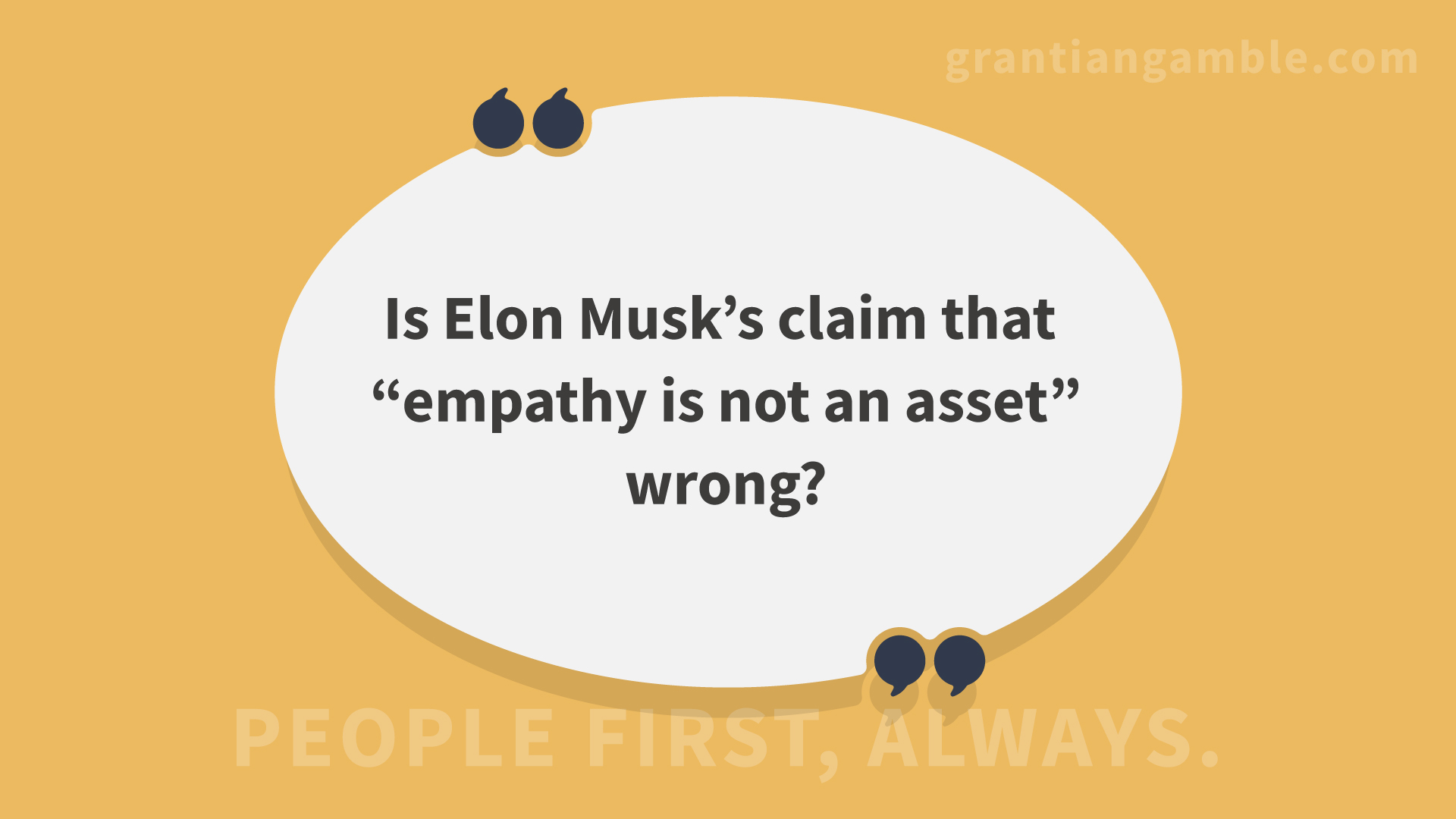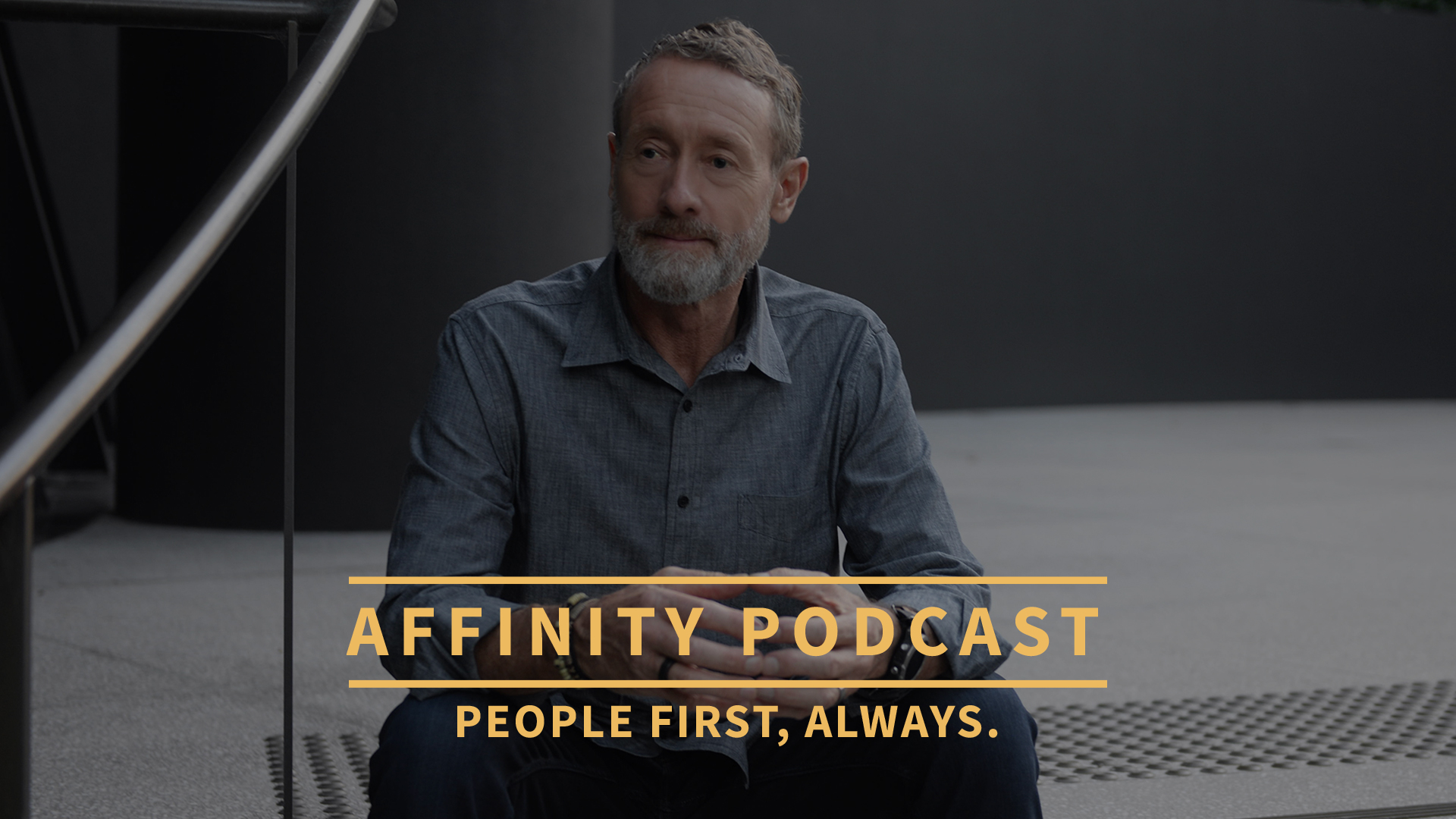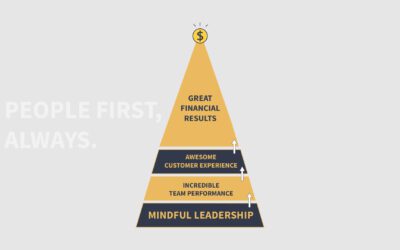Is Elon Musk Wrong?
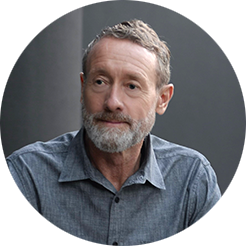
Grant Ian Gamble is a Founder of AFFINITY OS™, the #1 AI and Human-Driven Customer Experience, Team Member Engagement and Psychosocial Risk Business Intelligence Platform. He is also a best-selling mindful leadership author and speaker. Grant has four decades of experience in building and growing global fitness and wellness brands and communities, leading teams to create innovative customer experiences, building engaged workforces, and developing leaders who prioritize mindfulness in their approach in the health, fitness and wellness sector.
Elon Musk famously said, “Empathy is not an asset”.
Musk learned this from the video game Polytopia, which he played with his brother, coworkers, and partners. He made a list of life lessons from the game, which he calls Polytopia Life Lessons.
Ruthless Leaders: Outliers or the Norm?
Musk’s indifference to empathy is not isolated when you look at notoriously ruthless business leaders such as Jeff Bezos, Bill Gates, and Steve Jobs. They have all had difficulties with interpersonal dynamics and yet been incredibly successful by the mainstream’s definition of success.
So is this causative or correlative? Is being unempathetic and prioritizing profit over people the reason these leaders have been successful, or is it an unassociated relationship? Well, this is a sample size of 4, so maybe if we looked at a larger sample size, we could definitively determine whether putting people first provides a higher or lower return-on-investment.
The Numbers Don’t Lie: Prioritizing People Pays Off
Let’s take a sample size of 1,636 publicly listed companies and more than 15 million employee wellbeing surveys conducted by Indeed since 2019. This statistically significant dataset is the first of its kind and caught the interest of a team from Oxford University, headed up by Professor Jan-Emmanuel De Neve. What they did was map the survey responses from people at these 1,636 publicly listed companies and linked those scores to individual firms. They looked at:
1) Return on assets against their wellbeing scores;
2) Annual profitability against their wellbeing scores;
3) Company Valuation against their wellbeing scores.
In this study, De Neve and his team of researchers produced incontrovertible proof that the most successful organizations, and by extension their leaders, prioritize people over profit.
As opposed to the outliers like Musk, Bezos, Gates and the late Steve Jobs, the top 100 companies for wellbeing (they value and prioritize their teams’ wellbeing and engagement), surpassed the S&P 500 by more than 20%.
The study showed conclusively that investments that companies make in workplace wellbeing don’t detract from the bottom line, they contribute to it, even after controlling for company size, industry, geography and other variables.
What If Empathy Was a Strategy?
So back to Elon, Jeff, Bill and the late Jobs. These guys are all incredibly analytical. If they had this revelatory dataset when they were building their companies, how much more successful could they have been if they actually prioritized people over profit?
Breaking the Fear of Fluffiness
This massive body of research on workplace wellbeing makes the truth impossible to ignore. Companies need to get over their “fear of fluffiness” and be prepared to be more empathetic toward their teams’ needs. If they don’t, they will be left behind in the competition for capital. Savvy investors are peering into the future and placing strategic bets on the organizations that prize people over profit.
Measuring What Matters: AFFINITY OS’s Solution
But let’s bring this down to more realistic examples. What about the small to mid sized business owners? At AFFINITY OS™ (AOS), we see this same correlation. All the way from small companies to larger conglomerates, we see that when the team is prioritized, net gain builds, income increases and profits follow.
At AOS, we measure team member engagement and psychosocial risk in real time, gather sentiment and allow our clients to shape workplace wellbeing, simply and effectively.
You don’t need to be Elon Musk and it’s not rocket science. What you measure, you can manage, and measuring team engagement and workplace wellbeing pays huge dividends, as this study unequivocally demonstrated.
The Feel-Good Bottom Line
Placing more emphasis on the engagement and wellbeing of your team will reap significant rewards, and guess what, it feels good, too!

CONSULTING SERVICES:
Creating Transformative Wellness Through Innovative Design, Sustainable Solutions, and Operational Excellence
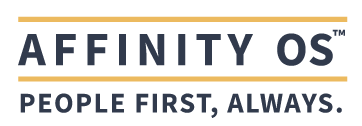
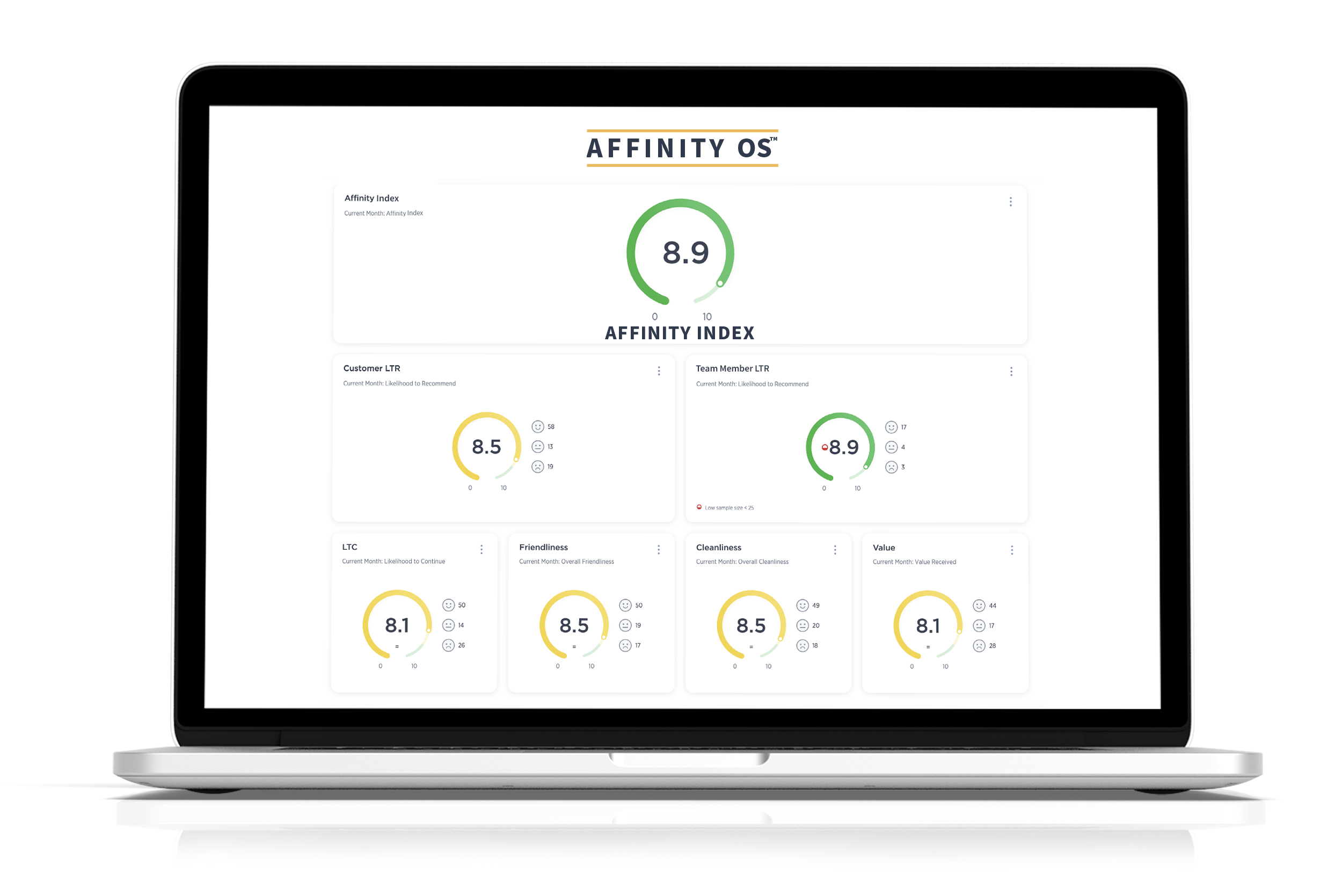 Interested in learning more about how to transform your organization’s approach to team member engagement and customer experience? Reach out to our team at AFFINITY OS, specialists in AI-driven customer experience and team member engagement optimization.
Interested in learning more about how to transform your organization’s approach to team member engagement and customer experience? Reach out to our team at AFFINITY OS, specialists in AI-driven customer experience and team member engagement optimization.

Dive into the heart of exceptional leadership and customer-centric success with AOS Academy. Our certification courses, guided by the “PEOPLE FIRST, ALWAYS” mantra, are designed to support professionals as mindful, effective leaders and service providers.
By integrating key insights from Grant Ian Gamble’s best-selling mindful leadership book, “The Affinity Principle”, we focus on nurturing people-centric cultures of empathy, effective communication, and customer service excellence.
The AOS Academy is more than just training – it’s a journey towards personal and professional transformation, ensuring every interaction and decision is rooted in understanding and valuing people first.
Put PEOPLE FIRST, ALWAYS and watch your business flourish.
Dive deep into the latest trends in customer experience and team engagement, mindful leadership and management. Discover practical tools and strategies that you can use to build a people-centric culture, the foundation for sustainable long-term business growth and success.
Led by mindful leadership expert, Grant Ian Gamble, a best-selling author and true visionary with over 30 years of experience in leading teams to create innovative customer experiences, building engaged, inspired and fulfilled workforces, and developing leaders who prioritize genuine connection in their approach.
The guiding principle behind all of Grant’s work is PEOPLE FIRST, ALWAYS.

More Articles:
Catch Us Doing Something Right: Gratitude on World Gratitude Day
Many years ago, I stole an idea from the San Francisco Bay Health Clubs. They had a suggestion box labeled “Catch Us Doing Something Right”.
This struck me as absolutely brilliant!
Rather than asking members to complain, they were asking them to see team members and others doing good things.
The Benefits of Frontline Team Member Engagement and Retention: “The Affinity Principle” Approach
In today’s competitive business environment, frontline team members—those who interact directly with customers—are the cornerstone of any organization, especially those with a high customer-facing presence. However, the traditional approach to talent management often overlooks this vital group, focusing mainly on managerial and executive roles. “The Affinity Principle” reimagines this strategy, stressing the importance of creating an enriching environment for frontline team members that fosters increased retention and better performance.
Unlock the Power of People: Transform Your Business with the AFFINITY Formula and AFFINITY OS
In a world driven by metrics and the relentless pursuit of growth, there’s a principle often overlooked—the essence of human connection. The AFFINITY formula is not just a theory but a realization of what truly drives success in any organization is the people. It’s about acknowledging that businesses don’t operate in isolation. They are living entities, shaped by the relationships between people.

